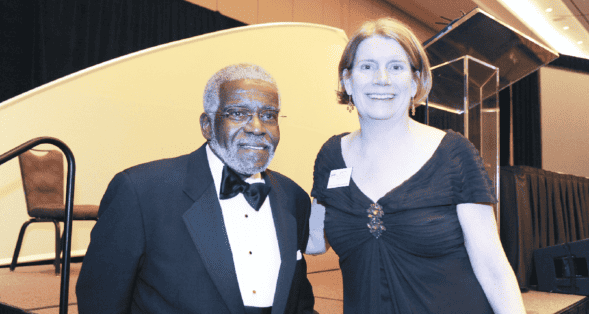In SWE’s annual member survey this fall, collegiate and professional members were surveyed about their SWE experiences and their current school-life and work-life experiences during the COVID-19 pandemic. Specifically, as COVID-19 safety measures, including remote learning and remote work, are still in place, relevant findings from this current survey about the impact of COVID-19 are contrasted with responses from SWE’s summer COVID-19 survey1.
Collegiate Members
While most SWE collegiate members had experienced some kind of remote learning for part of their Spring 2020 semester, 11% of college students had expressed their plans to take a gap semester in SWE’s summer COVDI-19 survey. However, among those that responded to the SWE’s membership survey this fall, less than 1% of students reported that they indeed took a gap semester (see Figure 1)2. On the other hand, most of the respondents from the summer survey intended to return to their college campuses to attend in-person classes. Despite this optimism, however, only 27% of fall survey respondents indicated that they did. More than half of students intended to take online classes, and indeed more than half reported that they did.
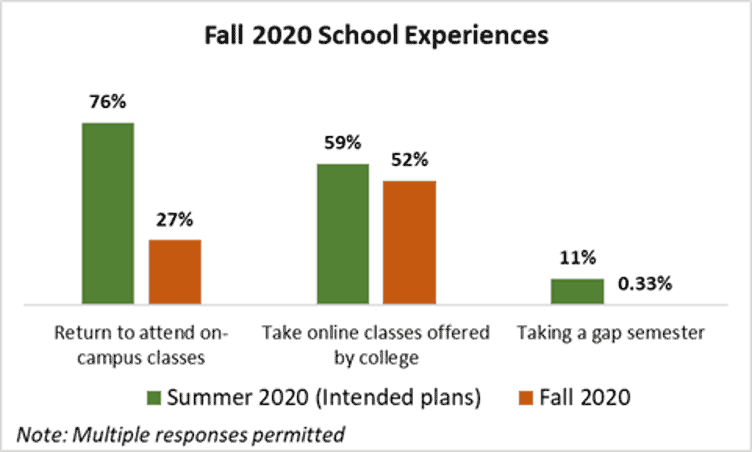
In the summer survey, 48% of students reported that they were concerned that the pandemic would delay their college graduation date, which is about the same proportion (46%) of the fall respondents who also expressed the same concern (see Figure 2). Importantly, a larger proportion of students of color express this concern for a potential graduation delay due to the pandemic than their white peers, and this too was observed in the summer COVID-19 survey. An article by Key reports that the findings from a study by the Center for Economic and Social Research (CESR) at the University of Southern California Dornsife College of Letters, Arts and Sciences suggests that there is a possibility that the pandemic can delay graduation for students of color. The study finds that while a higher proportion of students of color than white students report that their perceived value of a postsecondary education has increased due to the pandemic, a higher proportion of students of color also report that they would take a lighter course load due to the pandemic. In other words, students of color are taking less courses, which pushes their graduation date further.
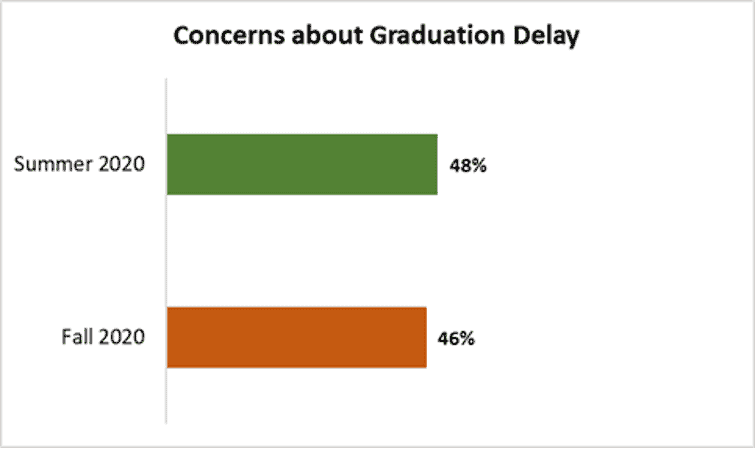
Professional Members
Similar trends were observed in terms of employer response to COVID-19 in both the summer and fall surveys. This includes a large percentage of professional members reporting that their employer has reduced or eliminated travel budgets as well as reporting that their employers implemented a hiring freeze (see Figure 3). However, in the fall survey, a lower percentage of members report that their employers had furloughed employees or implemented salary cuts compared to those who completed the summer survey. Still, a similar percentage (24%) of fall survey respondents as summer survey respondents indicated that their employer had laid off employees.
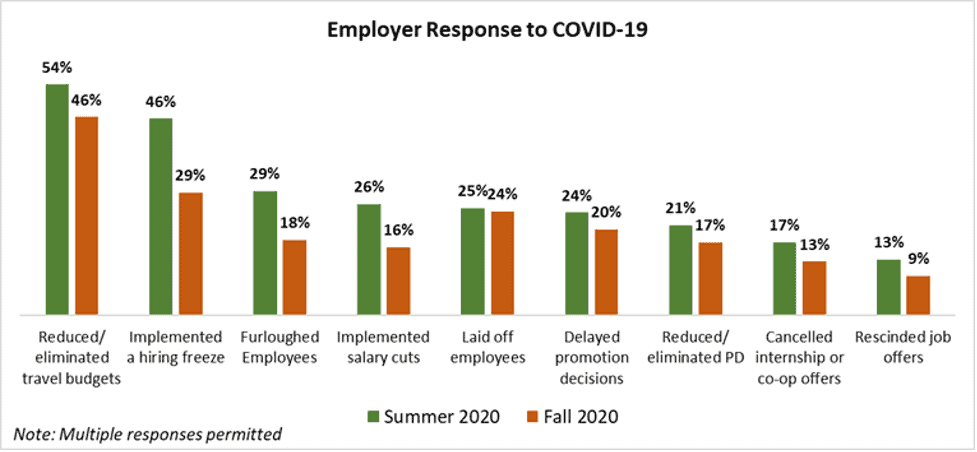
About 32% of professional members who completed the fall survey are concerned about losing their job within the next 6 months, which is slightly lower than the percentage of members who reported a similar concern in the summer survey (see Figure 4). Moreover, similar to the findings from SWE’s summer COVID-19 report, the fall survey also indicates that professionals of color are disproportionately affected by COVID-19, given that a higher proportion of professionals of color than white professionals expressed feeling concerned about losing their job in the next 6 months. While the economic effects of COVID-19 are felt nationwide, there is evidence that COVID-19 is disproportionately impacting women and people of color, particularly Black and Latinx workers, who are more likely to be laid off. Further, Black professionals, including those working in healthcare and tech sectors, did not regain their lost jobs while their white peers saw an improvement in their unemployment rate. Stepping back, these devastating job losses for women and people of color can have dire consequences in terms of diversifying the STEM workforce.
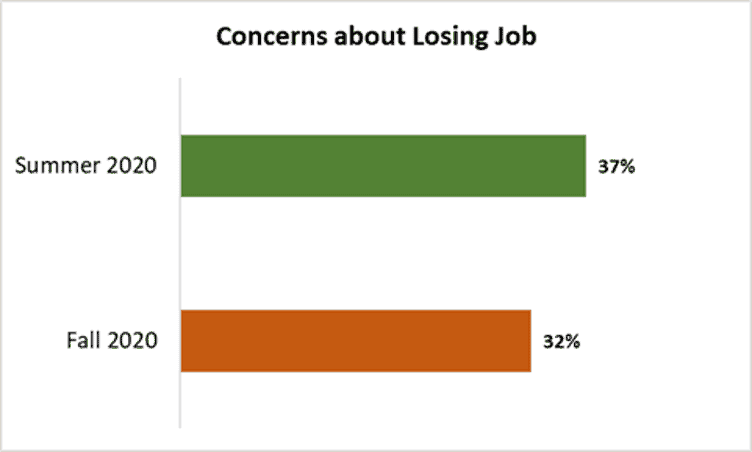
Notes:
- Findings were compared descriptively because we treated survey respondents as two separate cross-sectional samples, who may or may not have completed both summer and fall surveys.
- Additionally, among those who completed the fall survey, we report the weighted average responses from new and current SWE members.
Related Content:
- SWE Members Balance Work and eLearning
- SWE Survey Report: Impact of COVID-19 on Women in Engineering and Technology
- What Back-to-School Looks Like for Collegians in 2020
Author
-

Ursula Nguyen is a doctoral candidate in STEM Education at The University of Texas at Austin. She has a BS in Biomedical Engineering from UT-Austin. Prior to returning to UT, she was a first-grade Bilingual math and science teacher in Houston, TX. There, she was also the first-grade Math lead at her school. Her research interest on issues of equity in STEM education at the intersection of race/ethnicity and gender stems from her experiences as both an educator of STEM subjects and as a past engineering student. Currently, she is a graduate research assistant for Dr. Riegle-Crumb and a graduate research intern at SWE.


